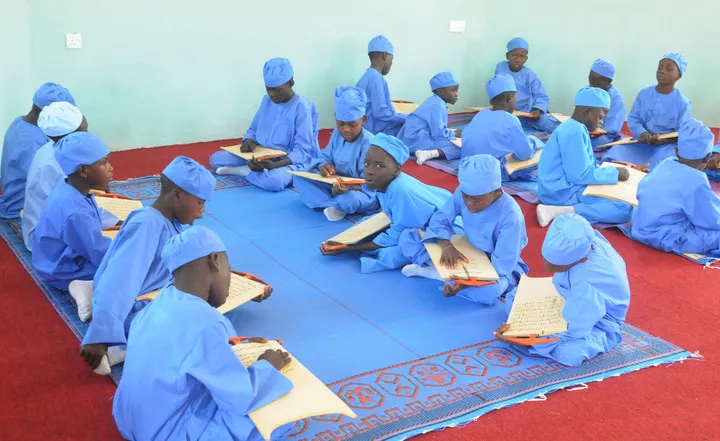Fifteen journalists drawn from Adamawa, Sokoto and Abuja have been tasked to dig deeper into the Tsangaya reform to provide sustainable solutions for the transformation of Almajirai and vulnerable girls in the Country through their reportage.
The Head of Social Development Programme, Plan International, Mr Laban Onisimus, disclosed this to newsmen during a 2-day media engagement and round table discussion tagged “EU-INTPA: Strengthening Civil Society to enhance education for All in Northern Nigeria held at Grand Pela Hotel, Abuja.
Mr Laban explained that the Tsangaya reformation, a federal government initiative aimed at reforming the traditional Islamic education system, has not been implemented despite being introduced by former President Muhammadu Buhari.
He said the media engagement aims to build the capacity of civil society organizations to engage with the government and demand the implementation of the Tsangaya reformation at the state level also focusing on promoting gender-responsive education sector and planning to ensure that education is provided to all citizens and that girls are prioritized, as the government’s attitude towards this issue has been lacking.
The project, which is funded by the European Union (EU), with Plan International as implementing partners has a duration of two years.
Laban explained that the first year of the project will focus on building support, developing documents to engage with stakeholders, and building the capacity of civil society organizations that will be responsible for advocacy at the state level.
While in year two of the project, the team plans to continue engaging with the government on gender-responsive education sector planning and popularizing the Tsangaya reformation initiative.
He said the Tsangaya reformation document is a robust and well-researched initiative that involved major stakeholders visiting other countries such as Mali, Burkina Faso, and Sudan to learn about how they address the issue of Tsangaya in their regions.
He said changing the mindset is the first step in addressing Nigeria’s out-of-school youth problem, which currently stands at around 20 million – a number equivalent to the population of Malawi.
“Unfortunately, Nigeria lacks a strategic approach to address this issue. Thanks to the EU’s support, the team has been able to develop a curriculum for accelerated basic education, which is designed to provide education to out-of-school children. ”
He observed that the curriculum will enable these children to spend nine months in a learning centre and then mainstream into a formal school that is age-appropriate for them.

 Join Daily Trust WhatsApp Community For Quick Access To News and Happenings Around You.
Join Daily Trust WhatsApp Community For Quick Access To News and Happenings Around You.


